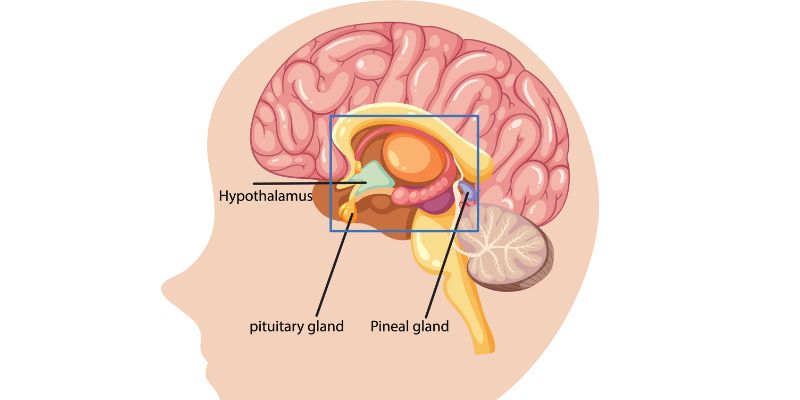Hypnotherapy is becoming more well-known as a different way to treat mental and physical health problems. To solve problems including anxiety, phobias, and even chronic pain, this technique guides people into a very calm condition, sometimes referred to as Hypnosis. Many ask, "Does hypnosis work?”.
Although some may question its effectiveness, studies confirm its possible advantages for several diseases. Hypnosis has demonstrated encouraging effects, from helping smoking cessation to enhancing sleep quality. This article explores Hypnosis's mechanisms, benefits, and suitability for you. Understanding this therapeutic technique will help determine whether it supports your wellness objectives.

Hypnosis is part of a guided treatment process known as hypnotherapy. It seeks to produce a condition of concentrated awareness. In this situation, the mind opens more to favorable recommendations. Using vocal cues and relaxation strategies, a licensed hypnotherapist leads the session. Working on the subconscious mind, the method helps people modify their thoughts or behavior, not mind control or sleep.
Rather, it is a changed normal condition of awareness. Among the several uses for Hypnosis are building confidence or conquering fear. Many confuse Hypnosis with entertainment. Still, clinical Hypnosis is a respectable technique supported by research. When executed by qualified experts, this is a safe approach. See a skilled practitioner if you want further information on hypnosis treatment.
Hypnosis enters the subconscious mind, where deep-rooted ideas and feelings find a home. People under Hypnosis become quite relaxed yet also concentrated, allowing the therapist to present ideas for positive change. Someone with a smoking addiction, for instance, might go through Hypnosis. The therapist could insert ideas meant to lower cravings. Anxiety sufferers may also pick up relaxation methods to help them clear their heads.
Research on the brain reveals variations in activity under Hypnosis. The less dominant the conscious mind becomes, the more subconscious alterations can be made. Hypnosis is not magic or a short fix. It calls for both therapist and client cooperation. Usually, frequent sessions produce the best outcomes. Because it promotes healing and self-awareness, many find it powerful. If you're asking, "Does hypnosis work? " Outcomes usually rely on the individual's goals and level of dedication.
Both physically and psychologically, Hypnosis has many advantages. Common benefits of hypnotherapy include these:
Every session works on particular issues. Clients claim better well-being over time. Sessions of Hypnosis have advantages beyond only mental wellness. Stress-driven physical disorders also show improvement. Still, the outcome depends on the person's readiness and the therapist's level of competence. One has to establish reasonable expectations. Although it's not a panacea, Hypnosis is helpful in your healing path.
One can benefit from hypnosis on a broad spectrum. Anyone trying to better their physical or mental state should find it appropriate.
Although many would profit, not everyone is a suitable candidate. Those with extreme mental health issues should first see medical experts. Although it enhances, Hypnosis does not replace conventional therapies.

When done under professional direction, Hypnosis is usually safe. Still, one should take certain precautions. Others could feel momentarily uncomfortable. That can involve emotional upset or headaches following sessions. Usually minor, these symptoms pass fast.
Everybody is not suited for Hypnosis. Severely mentally ill people, including those with schizophrenia, should avoid it. In such situations, Hypnosis could aggravate confusion or hallucinations. Unqualified practitioners provide even another risk. Make sure your hypnotherapist has experience and license. That raises effectiveness and lowers the possibility of injury. Hypnosis is a low-risk therapy all around. When done right, it can help. See a qualified hypnotherapist to determine if it's a safe choice.
A hypnotherapy session usually starts with an introductory consultation. The therapist probes your medical background and ambitions. You settle comfortably, either sitting or lying. The hypnotherapist guides you into a peaceful condition, which calls for deep breathing and concentrating on your voice.
The therapist starts positive suggestions after you are in a trance-like state. These fit your objectives, such as overcoming anxiety or giving up smoking. Sessions typically run between sixty and ninety minutes. You still keep awareness of your surroundings and remember everything later. You must trust your therapist. A good relationship improves the result. For effects that last, expect to show up for several sessions. Every session advances the one before it.
Unlike more conventional talk therapies like cognitive behavioral therapy (CBT), Hypnosis does not Hypnosis address the subconscious mind, whereas CBT emphasizes conscious thoughts. Both treatments offer unique advantages. CBT is evidence-based and methodically organized. More creatively and intuitively, hypnosis is for the best results, so some therapists mix these techniques.
Medication is also unlike Hypnosis. Drugs help symptoms; hypnotherapy deals with underlying issues. Since Hypnosis has no physical adverse effects, some find it to be a safer choice. Like hypnosis, mindfulness techniques, including meditation, have certain parallels, fostering self-awareness and leisure. But mindfulness is self-directed; Hypnosis is therapist-led. The correct therapy will rely on your requirements. See a qualified expert to discuss your choices. Often, the best outcomes come from combining treatments.
One interesting instrument for both physical and mental health is Hypnosis. It enables people to break patterns, face ingrained problems, and lower stress. Although there is no one-size-fits-all solution, many find its advantages transformative. The success of Hypnosis relies on personal dedication and the knowledge of the therapist. See a professional practitioner for further information on "Does hypnosis work." This therapy could be the secret to releasing a better, more balanced existence. See its possibilities and find out whether it fits your wellness objectives.

By Susan Kelly/Dec 21, 2024

By Georgia Vincent/Feb 28, 2025

By Georgia Vincent/Dec 31, 2024

By Maurice Oliver/Jan 15, 2025

By Sid Leonard/Dec 25, 2024

By Kristina Cappetta/Apr 28, 2025

By Verna Wesley/Oct 20, 2024

By Celia Kreitner/Oct 22, 2024

By Celia Shatzman/Apr 01, 2025

By Darnell Malan/Nov 10, 2024

By Elena Davis/Jan 07, 2025

By Gabrielle Bennett /Mar 16, 2025